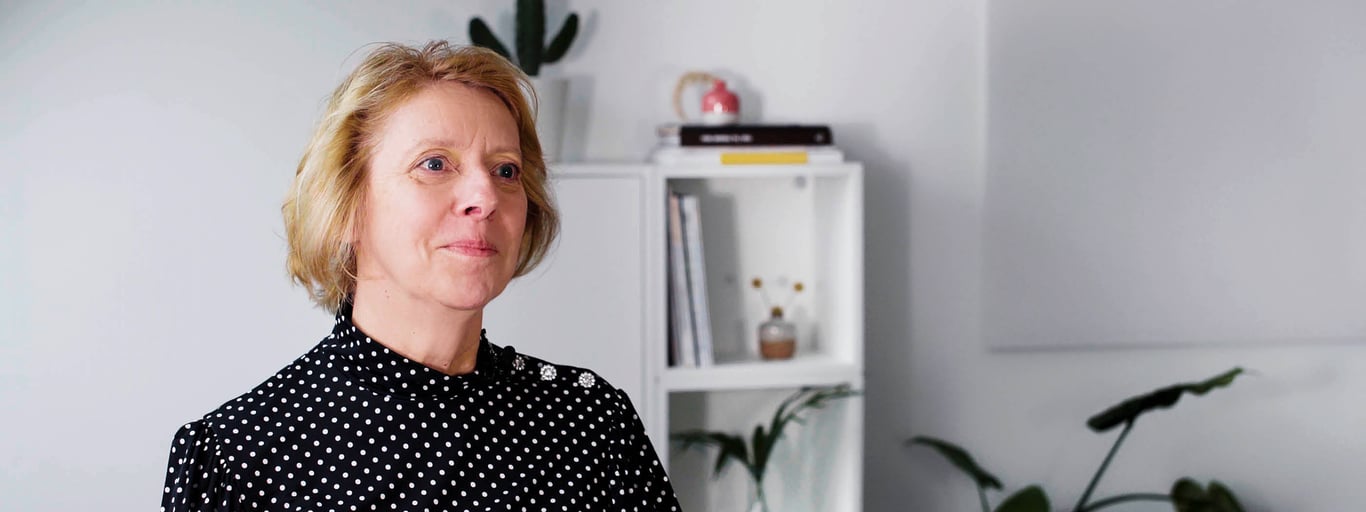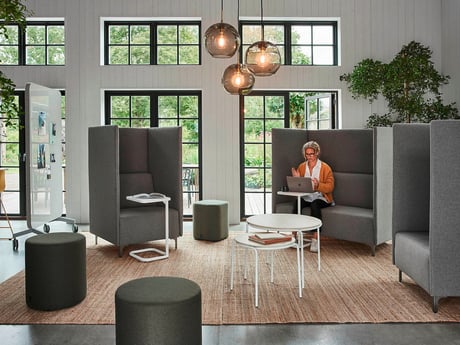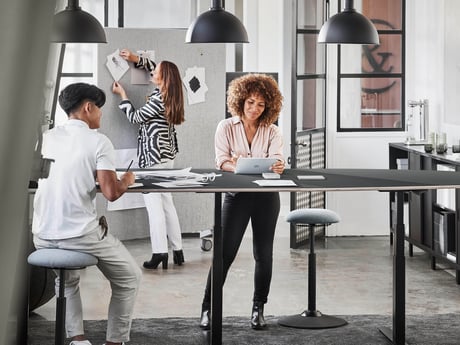- AJ Products UK
- Blog: Tips to Inspire Happiness at Work
- Tips & trends
- Tips from an HR expert: the new office

Tips from an HR expert: the new office
What does it mean to work in an office today?
I think many employees will vary their workplace throughout the week. Studies indicate that many will still work from home or a "hub" a couple of days a week. Company offices will therefore play a different role if we continue to work flexibly and remotely. They become more of a meeting point than an ordinary workplace. We will go to the office to meet colleagues and be creative together rather than to "get things out of the way", because we can do that from home or elsewhere.What are the benefits and challenges experienced in returning to the office?
One advantage of returning to the office may be that, having worked from home for a long time, employees have lacked social interaction with colleagues and professional development opportunities. For many, it has been lonely to work by themselves and they may not have had a good working environment or enough space. Being in the office again gives people a chance to change that.It may also have been difficult to develop the company, the organisation and the working methods when colleagues have been scattered. Spontaneous meetings as well as creativity are hard to achieve via digital media.
On the flip side, what was an advantage of working at home now becomes a difficulty when returning to the office: some employees have long commutes, which now begin again. Another challenge is making sure everyone feels comfortable as they start to hang out with more people. You will need to find an approach for the new normal.
What do you think will be the biggest change in offices in the future?
- Smaller work areas and fewer desk spaces.
- More small meeting rooms with good connectivity and technical equipment to facilitate digital meetings.
- More cosy meeting spots with space for socialising and creative meetings.
- It is becoming more common for companies to rent a place in work hubs and co-working places outside the city centre, as a complement to the main office and home offices. This is also a way to reduce premises costs.
As the office becomes a social meeting place and an area for innovation and creativity, the need for traditional desk spaces also changes. They are not needed to the same extent and many companies talk about downsizing their office space.
On the other hand, we will need areas for social interaction and exchange of thoughts and innovation. Digital meetings will certainly continue after the pandemic, even if some employees are working remotely while others are at the office. Therefore, there will be a need for areas that are designed to support digital meetings, such as several smaller rooms with good wi-fi connection and technical equipment.
What’s your best tip for office work?
The employer has a great responsibility to ensure that employees feel comfortable returning to the office by designing the workplace in the best possible way.
Working conditions should be adapted to people's different physical and mental conditions in order to achieve a good working environment.
Examine all technical equipment and provide the best conditions to facilitate cooperation and collaboration between offices and those who work remotely. Solving technical issues takes time and is hard work!
Arrange opportunities for togetherness and ensure that all employees meet regularly. Workshops, lunches and coffee breaks are important elements when creating a sense of belonging and a common corporate culture.
Review your facilities and improve the social areas. A good working environment and appealing premises will be a competitive factor in the future, not least when recruiting.



